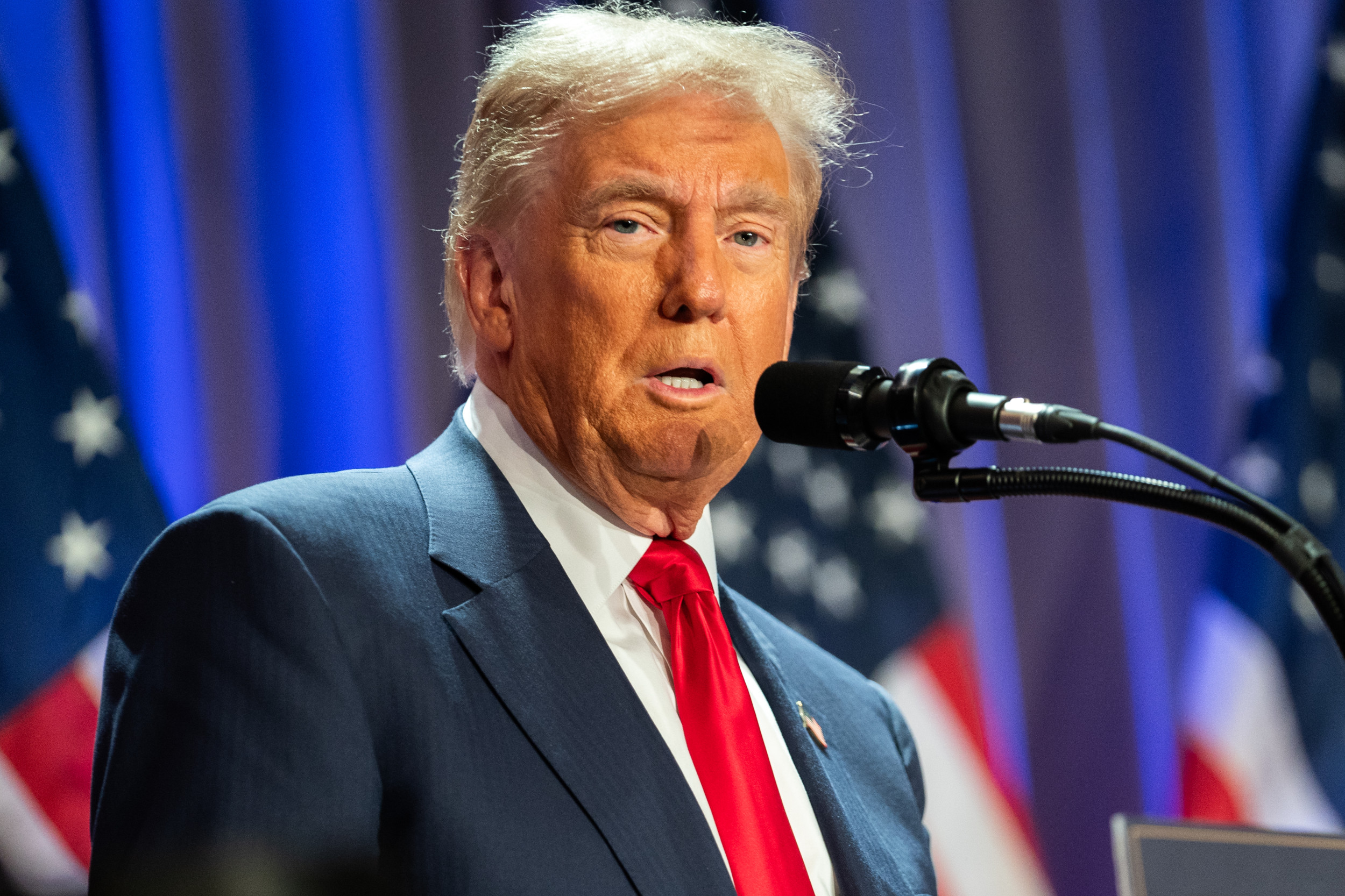
Donald Trump has touted his victory in the presidential race against Vice President Kamala Harris as “powerful,” but some experts say his mandate is small.
Trump defeated Harris in the presidential race earlier this month, sweeping every key battleground state and narrowly winning the popular vote, setting him up to return to the White House in January. Trump has vowed to enact sweeping conservative policies during his second term, describing his win as an “unprecedented and powerful mandate” in his victory speech.
Trump has said he would push for mass deportations of undocumented immigrants on his first day in office, implement tariffs aimed at stopping companies from relocating jobs overseas and appoint loyalists to key cabinet posts.
His supporters point to his popular vote victory and the Republicans‘ control of both the House of Representatives and the Senate as proof of the mandate. Trump is the first Republican to win the popular vote since George W. Bush in 2004, and this is the first time the GOP has held a trifecta since 2016.
Allison Robbert-Pool/Getty Images
Republicans’ full control of the federal government means they will have the authority to enact conservative policies over the next four years, but some political experts warn that Trump may be overstating his mandate.
Trump held a 1.7-point lead in the popular vote as of Monday morning, according to The New York Times. That is smaller than former Secretary of State Hillary Clinton‘s 2.1 point popular vote win in 2016 and less than half of President Joe Biden‘s 4.5 point win in 2020.
CNN’s senior data reporter Harry Enten made the case Monday morning that, while Trump had a “very wide” win, it was “not particularly deep” as the overall numbers pointed to a close election.
“The case that Trump’s mandate isn’t all that, look, if you look historically speaking, Donald Trump is now under 50 percent in the national popular vote. Barely under 50 percent, but he is under 50 percent,” Enten said.
Enten noted that Trump’s popular vote is only the 44th strongest victory in the 51 presidential elections held in the U.S. since 1824.
“That isn’t exactly strong. Some might argue that is weak, weak, weak, in the words of Tony Blair. In fact, his popular vote win at this point is the weakest going all the way back, you have to go all the way back to 2000, to find a smaller popular vote victory than Donald Trump currently has,” he said. “So, yeah, Trump has won the popular vote. But it ain’t all that.”
Newsweek reached out to Trump’s transition team for comment via email.
Enten also pointed out that Trump had weak coattails as Democrats won four Senate races in states Trump won—Arizona, Michigan, Nevada and Wisconsin. Meanwhile, House Republicans are on track to hold a “historically small minority.”
Republicans are currently leading 221 races, while Democrats are leading 214. Only a handful of these races have not been called.
“You have to go all the way back before there were 50 states in the union to find a smaller majority for the incoming House majority,” he said.
Others, however, have argued that Trump does have a large mandate.
“What these Democrats refuse to admit is that Donald Trump is coming back to Washington, D.C., with a mandate from the American people and is entitled to have his cabinet around him that he chooses,” said Trump’s 2016 campaign manager Corey Lewandowski on Fox News.
He added that Trump’s “mandate also allowed him to make the U.S. Senate a Republican majority,” saying his victories in states like Ohio and Pennsylvania carried GOP candidates across the finish line.
Laurence Tribe, Harvard law professor and legal analyst, also cast doubt on the size of Trump’s mandate in a post to X (formerly Twitter).
“Don’t buy into the illusion that Trump has a mandate to trample the rule of law or ignore the Constitution. He does not. Under 1/3 of eligible voters picked Trump. That is no mandate but a narrow victory,” he wrote.
However, veteran Democratic strategist David Axelrod wrote earlier in November that Trump can claim a mandate, but noted he should “understand what that mandate was about.”
“It was about boosting working people and dealing with the border, not appointing extremists to seek vengeance on his opponents,” he wrote on X.
